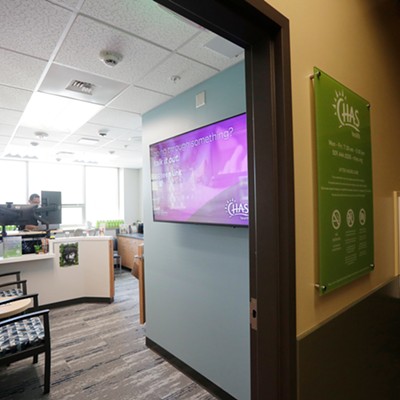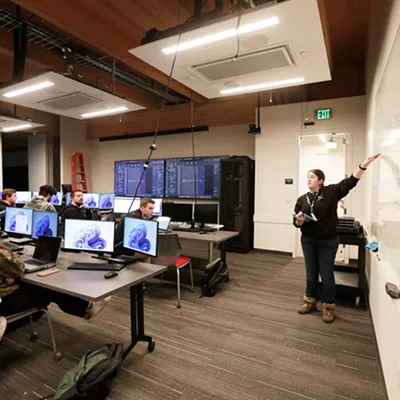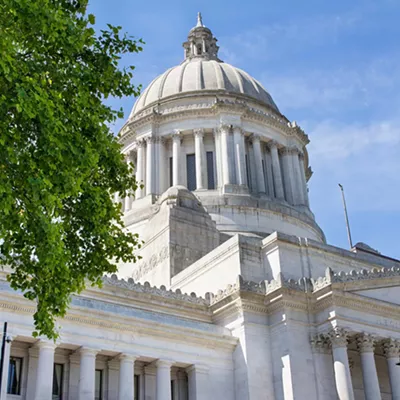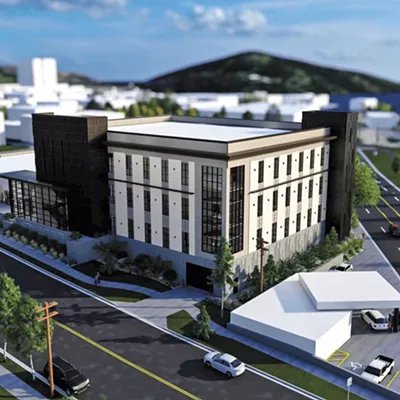Asking for Release
Patients at Eastern and Western State Hospitals who have been found NOT GUILTY BY REASON OF INSANITY and are no longer mentally ill are entitled to their release, a Spokane attorney argued before a federal judge Tuesday morning.
At a hearing at the U.S. District Court of Eastern Washington, attorney Andrew Biviano asked Judge Thomas Rice to order the state Department of Social and Health Services to review and identify all NGRI patients at state hospitals whom clinicians acknowledge have no mental illnesses. Those patients don't meet constitutional commitment criteria, Biviano said, and should be freed.
Tuesday's hearing was part of a federal civil rights lawsuit against Washington state and DSHS, alleging that current state laws violate NGRI patients of their constitutional and civil rights to adequate mental health treatment and release. The plaintiffs in the suit are three NGRI patients at Eastern and Western State Hospitals and Disability Rights Washington, an organizational plaintiff representing for all NGRI patients at state hospitals. Under state law, DSHS is required to regularly assess NGRI patients and petition the courts for their conditional or final release.
"We're not asking the court to take over the state system," Biviano said. "We're asking the court to facilitate the process."
When asked by the judge, Assistant Attorney General Sarah Coats denied that there are any NGRI patients at state hospitals with no treatable mental illness.
But Biviano pointed to the case of plaintiff "J.T.," a former NGRI patient at Eastern. Biviano said DSHS actively opposed J.T.'s release for more than a year after his doctor determined he wasn't mentally ill. J.T. was discharged last month when a judge and prosecutor in the county where his case was tried agreed that his continued commitment was unconstitutional. There are other patients, Biviano said, like J.T. who have no mental illness and remain confined with no plans for release. (DEANNA PAN)
Priorities, Priorities
On Monday, the Spokane City Council voted 6-1 to approve its LEGISLATIVE AGENDA — an outline of the priorities the city will ask its lobbyist to advocate for during the next legislative session.
The agenda pushes funding for both Washington State University's proposed new medical school and the University of Washington's proposal for more medical school slots in Spokane. But it pushes WSU's project a little harder.
The $2.5 million dollars for WSU's med school, along with funding to clean up the river and a transportation package, was in the city's "Top Priorities" section. It's only under "Additional Specific Priorities" that UW's expansion appears.
A number of community members, including GSI president Steve Stevens, urged the council to give the two schools equal priority. So did UW. But some of the WSU-hired teachers currently teaching UW medical students argued WSU's project would clearly offer more benefit to the community. "In the past 42 years, University of Washington has provided no research dollars to the city of Spokane," said George Novan, associate dean of WSU's College of Medical Sciences. (DANIEL WALTERS)
'Bomb train' hearing
Environmental advocates and transportation officials should expect heated testimony at a public hearing Tuesday on the potential safety and pollution risks surrounding the passage of CRUDE OIL TRAINS along Spokane railways. As such traffic has increased since 2012, citizens and emergency officials have expressed growing concern about the threat to public safety.
A preliminary study released this month by the state Department of Ecology recommends increased funding for spill prevention, enhanced inspections and additional transparency on oil rail shipments. That report found at least 16 trains of crude oil, labeled "bomb trains" by opponents, pass through Spokane County each week.
"There are particular concerns about the types of oil being transported — Bakken crude — due to its potential volatility and public safety hazards," the study states.
The Department of Ecology will host the upcoming public meeting from 6-10 pm Tuesday at the Doubletree Hotel on Spokane Falls Court. Commentary will be incorporated into the ongoing transportation study on the issue, with a draft report available by Dec. 1. (JACOB JONES)




























